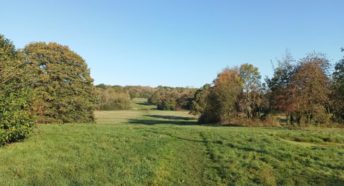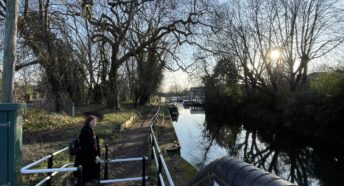Enfield Green Belt threat continues
Green Belt destruction: a lose-lose option for the people of Enfield.
As part of our on-going coalition with local campaigners in Enfield, working to save Green Belt, we wrote to the leader of Enfield Council in response to an article published in the Enfield Dispatch. It covers some important issues and principles so we are reproducing it here:
Dear Cllr Caliskan,
“Packing people into small units in dense towers” comment in Enfield Dispatch
We are writing to ask the council to retract comments made by Enfield Council in yesterday’s Enfield Dispatch article where a council spokesperson is quoted as saying “insufficient urban land means a stark choice between packing people into small units in dense towers with a lack of access to open space and supporting infrastructure, or using a small amount of rural areas for high-quality affordable housing with access to gardens and extensive public space” because this presents a false choice using emotive and inflammatory language which appears designed to prejudice consultation responses.
It is the strong opinion of ourselves, and many Enfield and London stakeholders, based on carefully collated evidence and data, that no such ‘stark choice’ exists:
- There is enough brownfield land in Enfield to build enough new homes at appropriate density (not packing people into small units in dense towers) and provide for other development needs
- Green Belt developments do not deliver affordable housing: a recent CPRE report showed the average percentage of all new housing in the Metropolitan (London) Green Belt that was classed ‘affordable’ is 7% for the most recent year data was collected
- ‘Access to open space and supporting infrastructure’ must – and can – be planned wherever housing development takes place: the implication that it is only possible to provide ‘open space and supporting infrastructure’ in a rural setting is false. In fact, unless new shops, schools, surgeries and bus routes are provided, residents in new Green Belt developments would need to travel by car to reach existing amenities elsewhere in Enfield. Developments in urban settings, on the other hand, can take advantage of existing infrastructure like sewers, electricity mains, buses and shops; other supporting infrastructure can be provided as part of the development; and people can live close to jobs and amenities thereby reducing the need to travel. And derelict green space can be brought back into use as we have shown in relation to land to the east of Meridian Water.
- The statement fails to mention the lack of supporting transport infrastructure in Green Belt developments where evidence shows the vast majority of trips will be made by car, whereas in urban settings homes can be built ‘car free’ or using car share schemes, so reducing congestion and pollution and enabling people to adopt healthy lifestyles – using public transport, walking and cycling to travel (a central tenet of the London Mayor’s Transport Strategy and the London Plan).
- More generally, this statement does not mention the negative impact of building on London’s Green Belt or the critical role London’s Green Belt is increasingly playing in managing the climate and nature crises, and providing local food growing opportunities.
As you know, it is the council’s duty to investigate brownfield opportunities and present evidence via the Local Plan Development process to make a case for land allocation. At a minimum, given there are a large number of well-informed and well-respected stakeholders who believe there is no need to build on Enfield’s Green Belt, and that doing so would in fact be the worst possible option, we believe the council should be giving brownfield options more serious consideration.
Instead it has put forward its own opinion publicly, in a way which is itself prejudiced and, in using emotive language, appears designed to prejudice responses to the Local Plan consultation.
We ask that you retract the comments publicly and engage with ourselves and other stakeholders to create a Local Plan framework which can support the delivery of genuinely sustainable development in Enfield.
I look forward to hearing from you.
Yours sincerely
Alice Roberts
Head of Campaigns
CPRE London







